SEACAP 4 SDG implemented the Local Living Lab workshops on public building renovation in Naples (Italy)
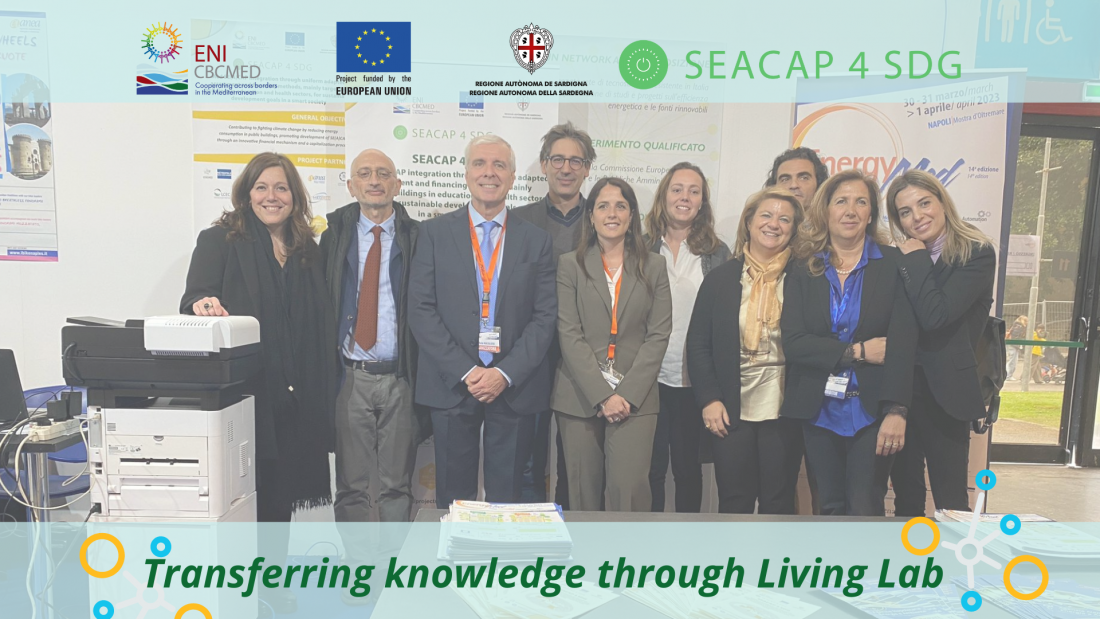
As set out in the project, different Local Living Labs have been organized among Mediterranean countries in the past months. For example, our main partner from Italy, Naples Agency for Energy and Environment (ANEA), decided to organize a three sessions workshop which took place between February and April 2023 in Naples (Italy).
The training was delivered in collaboration with the Municipality of Naples, selected as beneficiary of the support mechanism set up by the project in Italy, and experts from the selected external entity the Interdepartmental Research Center Laboratory of Urban and Regional Planning "Raffaele d'Ambrosio" (LUPT) of the University of Naples "Federico II".
The objective of the SEACAP4SDG training for the City of Naples was to integrate the relevant tools proposed by the project within the methodological flow already defined by the Technical Office "Environmental Monitoring and SEAP Implementation" for updating the current Naples SEAP into SECAP.
During the Local Living Labs different key tools proposed by the SEACAP4SDG Toolkit were identified as particularly relevant to expand the potential of the tools already available to the city of Naples. The training was delivered according the following methodological steps/tools:
- On February 27th the integration of SECAP Naples policy tools with SEACAP4SDG tools was discussed, such as tool interface parameters and process workflow from preliminary assessment to planning, design and implementation.
- On March 31st the training took place during the EnergyMed exhibition, and focused on the evaluation tools for public building energy renovation, such as KPIs-processor's GIS plug-in and financial scheme evaluation tool from IMPULSE, for direct integration into a GIS environment and structured methodology to improve data collection for public building energy and environmental monitoring, renovation planning, and potential financing. Then was introduced the School LCA Calculator from EduFootprint, given the significant share of school buildings among the different categories of public buildings and the potential for improving the calculation of direct and indirect energy consumption in terms of carbon/environmental footprint.
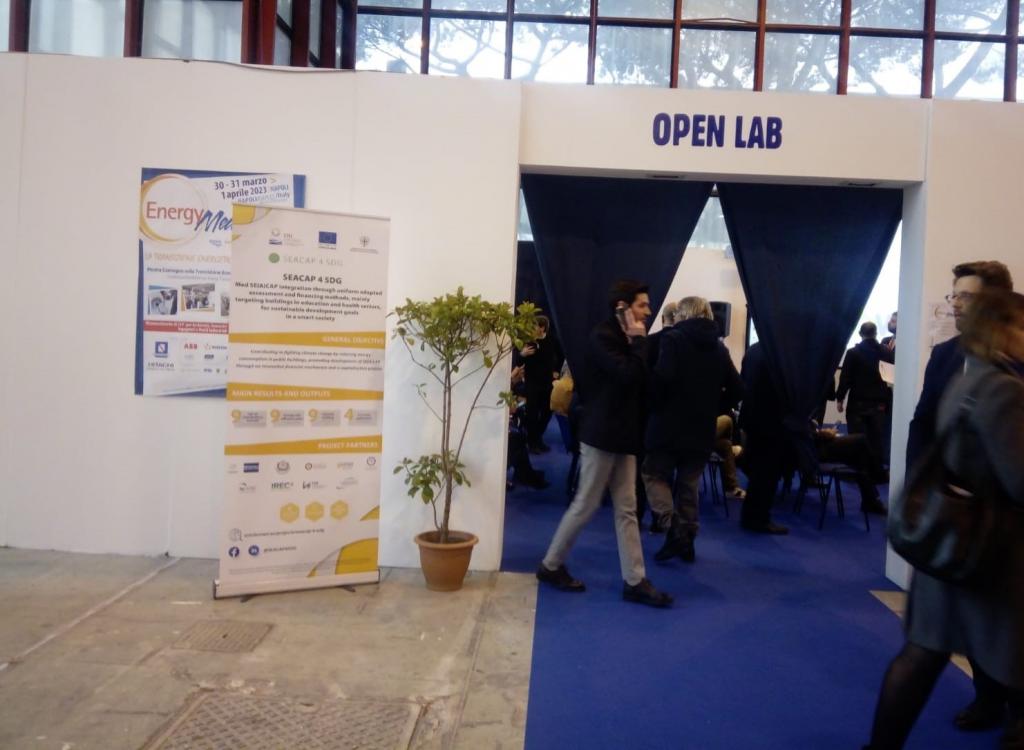
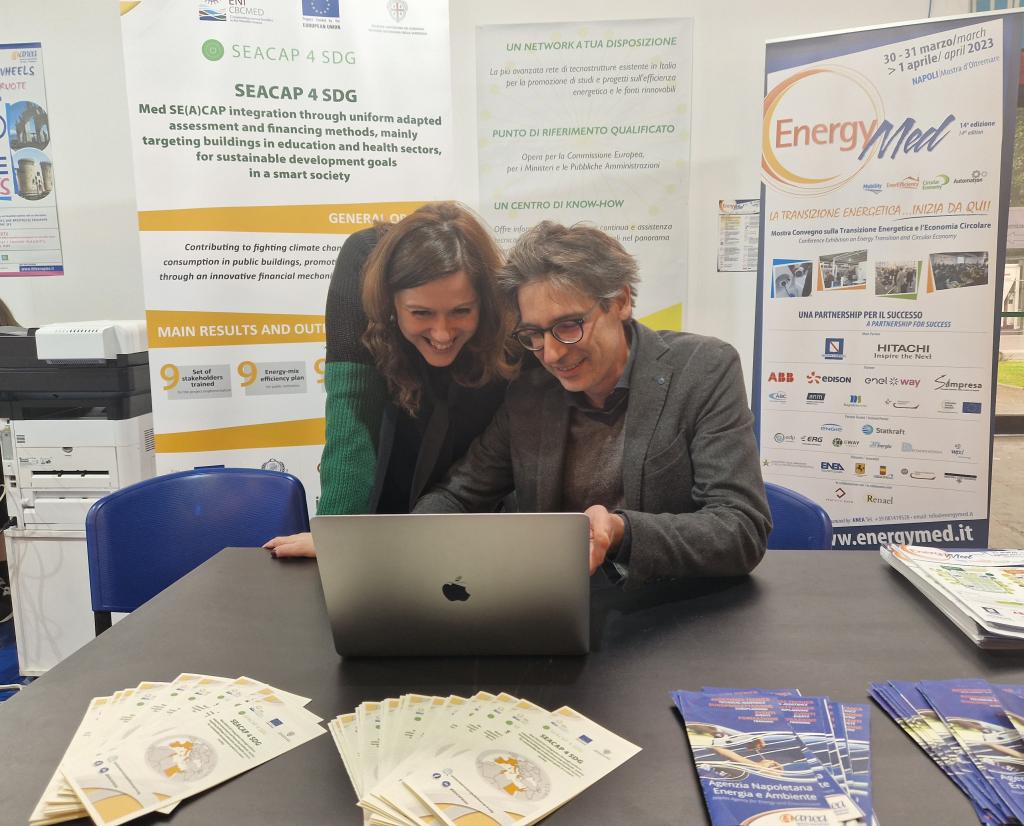
- On April 26th the Co-design Tools were presented, such as the MCBLL - Mediterranean Cross-Border Living Lab (MED-ECOSURE), given the potential to achieve through living labs a behavioural change on energy use that can in turn reduce energy consumption for the residential sector as well (students as "environmental mentors" for their families). Furthermore, the SBT-Sustainable Building Tool and SNT-Sustainable Neighborhood Tool (CESBA MED S) was selected for the quality of the indicators identified, related to both climate mitigation and adaptation, and the direct link to the evaluation process of retrofit strategies and scenarios, based on both quantitative and qualitative aspects.
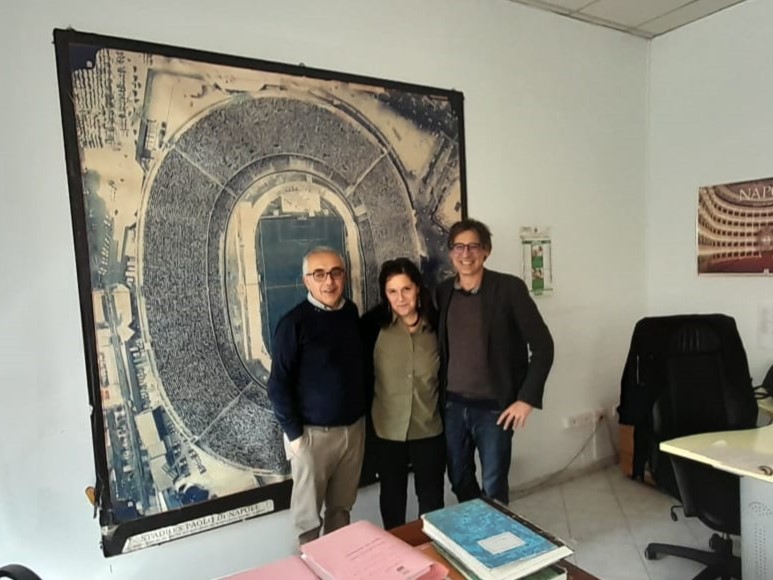
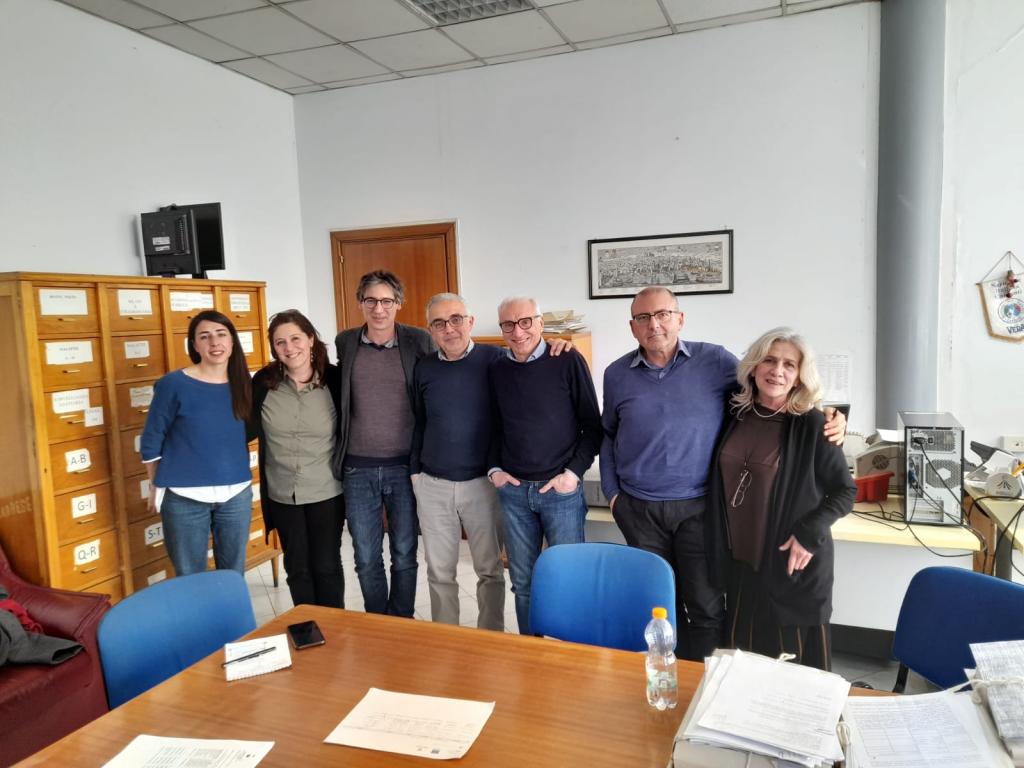
The goal was to provide a harmonized workflow for the preparation of the Naples SECAP, linking the policy tools available to the City of Naples with the identified SEACAP4SDG tools.









